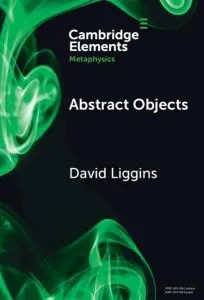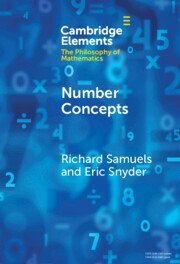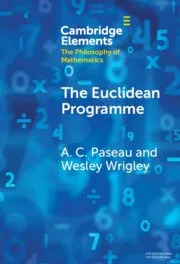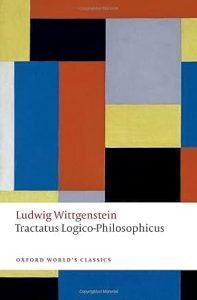Peter Smith's Blog, page 14
February 18, 2024
More Cambridge Elements: Mark Wilson on maths, David Liggins on abstract objects
 I overlooked Mark Wilson’s Innovation and Certainty when it was published in 2020. But I didn’t miss much. The topic is an excellent one — just what is going on when we make innovations like adding points and lines at infinity in geometry (to take a reasonably comfortable but still instructive example), and just how are these extensions justified? How can we be sure they don’t lead us astray? But heavens, Wilson’s discussion is arm-wavingly pretentious and tediously obscurantist. It is just a dreadful piece of writing, and it baffles me that the series editor let it pass. Don’t waste time on this.
I overlooked Mark Wilson’s Innovation and Certainty when it was published in 2020. But I didn’t miss much. The topic is an excellent one — just what is going on when we make innovations like adding points and lines at infinity in geometry (to take a reasonably comfortable but still instructive example), and just how are these extensions justified? How can we be sure they don’t lead us astray? But heavens, Wilson’s discussion is arm-wavingly pretentious and tediously obscurantist. It is just a dreadful piece of writing, and it baffles me that the series editor let it pass. Don’t waste time on this.
 By contrast, David Liggins’s brand new mini-book on Abstract Objects is the very model for how Elements should surely be. It is admirably lucid and plain-speaking, approachable by an undergraduate student, yet the way Liggins organizes the material (evidently reflecting a good deal of thought) ought to be useful too for readers with rather more background who, for example, want to revisit the area and perhaps return to thinking about it.
By contrast, David Liggins’s brand new mini-book on Abstract Objects is the very model for how Elements should surely be. It is admirably lucid and plain-speaking, approachable by an undergraduate student, yet the way Liggins organizes the material (evidently reflecting a good deal of thought) ought to be useful too for readers with rather more background who, for example, want to revisit the area and perhaps return to thinking about it.
I do have quibbles. Well, more than quibbles. I suspect that we have pretty different views on Hale/Wright abstractionism (which is touched on), and on the value of the ideas in e.g. Charles Parsons’s Mathematical Thought and Its Objects or Øystein Linnebo’s Thin Objects, (neither of which is mentioned). And if I weren’t telling myself that I must concentrate on other projects, I’d certainly be moved to engage properly here. But disagreement is only to be expected with a fifty-page essay. And I’d still happily put this into the hands of a student. Wilson’s effort, not so much.
(Abstract Objects is still free to download from CUP for another 48 hours or so.)
The post More Cambridge Elements: Mark Wilson on maths, David Liggins on abstract objects appeared first on Logic Matters.
February 14, 2024
Since it is Ash Wednesday …
The post Since it is Ash Wednesday … appeared first on Logic Matters.
February 5, 2024
Two new Cambridge Elements on Phil. Maths

 Just briefly to note that there are two new short contributions in the Cambridge Elements series in the Philosophy of Mathematics, both free to download for another week. The Euclidean Programme by Alex Paseau and Wesley Wrigley critically examines the traditional idea that mathematical knowledge is obtained by deduction from self-evident axioms or first principles. How much of that idea can be rescued?
Just briefly to note that there are two new short contributions in the Cambridge Elements series in the Philosophy of Mathematics, both free to download for another week. The Euclidean Programme by Alex Paseau and Wesley Wrigley critically examines the traditional idea that mathematical knowledge is obtained by deduction from self-evident axioms or first principles. How much of that idea can be rescued?
And Number Concepts by Richard Samuels and Eric Snyder takes an interdisciplinary approach to reviewing and critically assessing work on number concepts in developmental psychology and cognitive science. (And after all, shouldn’t philosophers of arithmetic be interested in the concepts deployed by folk arithmeticians?)
So far, contributions in this series have been, it seems to me, a rather mixed bunch. So naive induction is little guide, in this case, as to how worthwhile these new efforts will prove to be. But let’s live in hope. When I’ve had a chance to take a proper look, I’ll let you know what I think. But I thought I would post a quick note straight away, while these two Elements are still freely downloadable, and you can judge them for yourself.
The post Two new Cambridge Elements on Phil. Maths appeared first on Logic Matters.
February 1, 2024
Ergo?
These days I rarely visit the philosophy news website Daily Nous. But my eye was caught by a recent post (or in fact, a re-post) inviting readers to report markedly good experiences with journals — to counterbalance the frequent complaints about various journals for the slowness of getting any decision, and worse. And in the replies, the journal Ergo comes in for a lot of praise as outstanding in handling submissions. That had to be a surprise to me, because (ok, I’m obviously way off the pace here!) the journal had previously never crossed my radar.
So I took a look, here. And at one level I’m hugely impressed. It’s a genuinely open-access journal; its procedures seem quite exemplary in principle, and by all accounts work excellently well in practice. The online reading experience is terrific, with a well-designed look’n’feel. And if you download a PDF of an article, it is also very decently designed. (Someone with a good eye was involved in tweaking the under-the-bonnet engines driving the site.) As you will probably know, I’m all for open-access, and Ergo seems a splendid model for journals. All credit to those involved.
But.
But ….
When I looked at the abstracts of the forty pieces published last year how many did I actually want to read?
Pretty much zero. I did try dipping into a few on topics that I could perhaps have mustered some interest in but (no names, no pack drill) I found them laboured and unexciting, and I just wasn’t drawn in at all. What did I overlook?
Now I’m well aware that this could indeed reflect much more on my increasing distance from the fray than on the quality of the papers. But equally, I really had little sense that I was missing out on a scene of bubbling intellectual ferment. I’m almost tempted to add: not like the good old days, eh?
(Oh, and I did notice that Analysis still comes in for praise in the Daily Nous comments. That’s good to hear.)
The post Ergo? appeared first on Logic Matters.
January 23, 2024
A categorial update
Some categorial news:
I have just withdrawn Category Theory I: Notes towards a gentle introduction from sale as a pbk. There is going to be a new pbk edition, with a slightly different title, shortly — and now that plans are firmly under way, I don’t want anyone splashing out their hard-won pennies today only to find that a shiny new update is available a few weeks later.You can download a draft of the new Category Theory I: A gentle prologue from the category theory page here. The obvious major change is that the chapters on elementary toposes at the end of the previous version have been moved to Part II, and a few initial chapters on functors moved from Part II into Part I. One result is that all of Category Theory I can indeed be thought of as a gentle prologue to some core topics in category theory.The current draft of Category Theory II can also be downloaded. It has the new subtitle Four basic themes with groups of chapters covering (A) more on functors, including natural transformations, (B) around and about Yoneda, (C) adjunctions (D) a little on elementary toposes. I hope that a pbk version will be done and dusted by Easter.I would still hugely welcome comments and corrections on both Parts. And indeed, even when paperbacked for those who like me prefer working from a printed copy, I’ll continue to think of them as beta versions — largely functional and I hope not too buggy but still work in progress.It’s been sort-of enjoyable trying to get this stuff straighter in my mind, and a few friendly souls have told me that they’ve found my efforts helpful. But it really is (past) time I got back to other logic matters ….
The post A categorial update appeared first on Logic Matters.
January 14, 2024
Schubert on Sunday 8: Julian Prégardien and Els Biesemans, Die Schöne Müllerin
Julian Prégardien, in wonderful voice, is utterly compelling. The plangent tones of the fortepiano and Els Biesemans’ utter involvement adds so much. The shared level of commitment makes for a heartbreaking performance, of great emotional intensity. Surely one of the very finest recorded performances on disc or otherwise that we have.
Why it is in grim times that such wrenching music can yet be, in its way, consoling I cannot tell.
The post Schubert on Sunday 8: Julian Prégardien and Els Biesemans, Die Schöne Müllerin appeared first on Logic Matters.
January 8, 2024
Beaney’s Tractatus translation
 I’m not sure what prompted me to send off for a copy of the new translation of the Tractatus by Michael Beaney (it is, though, a very inexpensive paperback from Oxford World Classics, for which OUP are to be thanked).
I’m not sure what prompted me to send off for a copy of the new translation of the Tractatus by Michael Beaney (it is, though, a very inexpensive paperback from Oxford World Classics, for which OUP are to be thanked).
A quick description. The initial apparatus is almost a hundred pages. There is a sixty page Introduction, very much aimed at the new student reader. Then an eighteen page Note on the Text which goes into probably unnecessary detail. There is a daunting Bibliography and a short Wittgenstein Chronology. Then comes the Translation — but no German text on facing pages on the rather feeble grounds that the text is readily available online. (Given the choice, I’d have thought that many readers might have preferred the read-once Note on the Text to be mostly an online supplement, and the might-want-to-consult-often German original to be included.) There’s an Appendix giving the top-level numbered propositions again. And then twenty pages of Explanatory Notes, which often comment on the original German, making the absence of the original again an oddity. And finally there is a two-part Glossary, first German-English and then English-German.
How useful is the Introduction? Much more importantly, how good is the Translation?
On the first, I’d say the Introduction is not particularly good or clear. Perhaps it tries to do too much in too short a space. The student new to the Tractatus would do much better to read the (albeit rather longer but wonderfully clear) chapters in Antony Kenny’s still remarkable 1973 Wittgenstein or perhaps the main chapters of Roger White’s still short 2006 Wittgenstein’s Tractatus Logico-Philosophicus.
As for the Translation, I’m in no position to really judge. But, almost at random, here’s the Pears/McGuinness rendering of 4.026:
The meanings of simple signs (words) must be explained to us if we are to understand them. With propositions, however, we make ourselves understood.
Beaney has
The meanings of simple signs (words) must be explained to us for us to understand them. With propositions, however, we communicate.
The repeated “us” in the first sentence is unnecessarily ugly. And Beaney adds a note on the second sentence “lit. we make ourselves understood, connecting with the use of ‘verstehen’ (‘understand’) in the previous sentence” which makes the departure from Pears/McGuinness seem a bit puzzling. Is Beaney’s version an improvement?
Again, here’s the Pears/McGuinness translation of 4.041
This mathematical multiplicity, of course, cannot itself be the subject of depiction. One cannot get away from it when depicting.
And Beaney:
This mathematical multiplicity, of course, cannot in it turn be depicted. One cannot get outside it in depiction.
Is the second sentence even English?
And so it goes. I’m not immediately bowled over. However, it is evident that a great deal of thought and widely-sought advice has gone into shaping the translation, and many of the notes on translation look well-judged. Beaney’s final explanatory note is a rather engaging two-page essay on why he has, for example, rendered the famed last sentence of the Tractatus as “Of what one cannot speak, about that one must be silent.”
As to content of the Tractatus itself, about that I must indeed be silent!
The post Beaney’s Tractatus translation appeared first on Logic Matters.
January 5, 2024
The Study Guide, corrected reprint
There is now a corrected update of the Beginning Mathematical Logic Study Guide. The list of known typos for the 2022 printing was getting embarrassingly long; so I’ve taken the opportunity to correct these plus the one thinko noted on the corrections page. Otherwise little has changed, apart from some minor rephrasing here and there. There’s certainly no need to rush to order a new copy if you already have one!
The corrected PDF is now available for download. The print-on-demand version should update to match within two or three days, and I’ll confirm when I get a copy of the new version. So if you were thinking of buying yourself a copy as a New Year’s treat, hold off for a few days!
I plan to intermittently work on a revised second edition over the coming year, improving some of the topic overviews, and — this will take some time and effort! — revisiting some of the sets of recommendations. Still, in reading through parts of the Guide while preparing the corrected reprint, I mostly still thought reasonably well of it in its current state; and so I hope this very minor update will serve for the moment.
The post The Study Guide, corrected reprint appeared first on Logic Matters.
January 3, 2024
Tim Button on sets and functions
A very interesting new piece on the arXiv by Tim Button, on “The iterative conception of function and the iterative conception of set” — what’s to choose between a universe of sets and a universe of functions as a “foundation”? Technically inventive, conceptually challenging.
The post Tim Button on sets and functions appeared first on Logic Matters.
January 1, 2024
Big Red Logic Books: 2024 plans
If you are new here, then here is the default page about the Big Red Logic Books
As I’ve noted before, self-publishing seemed exactly appropriate for the Big Red Logic Books. They are aimed at students, so why not make them available as widely as can be? — free to download as PDFs, for those happy to work from their screens, and at minimal-cost as print-on-demand paperbacks for the significant number who prefer to work from a physical copy. I posted reports of how things went in 2021 and 2022, half-hoping to encourage a few others to adopt the same sort of publishing model (though of course recognizing that those in early or mid career need the status points that come from conventional book publication). And I offered to give advice on the nuts and bolts of self-publishing to anyone interested. But response came there none. So I won’t bother to give a detailed report for sales and downloads in 2023. Rather, here are just a few headlines, and some thoughts about what comes next. Taking the books in the order of first publication on Logic Matters:
An Introduction to Gödel’s Theorem (2020: corrected reprint of CUP 2nd edition of 2013). Sales and downloads in 2023 slightly down on 2022 — but still almost 600 paperbacks sold in the year. I’m inclined to leave well alone, as many readers like the book as it is! (No, I’m not making a fortune! — the paperback prices are set so that total royalties are now zero for some books and pennies for others, together approximately covering the cost of keeping Logic Matters online.)
An Introduction to Formal Logic (2020: corrected reprint of CUP 2nd edition). Sales up over 20% at over 1500, downloads up over 55% compared with the previous year. Perhaps two or three more lecturers are using it as a course text. The absolute figures aren’t great, but then there are so many other intros to logic to choose from. There’s part of me that would like to one day write a third edition, or rather write a somewhat different Another Introduction … But whatever happens, I’ll leave this version available and in print, as it would be so annoying for those who have adopted the text if I dropped it!
Gödel Without (Too Many) Tears (2021, and then a second edition in late 2022). I thought that this much shorter book would for many be much preferred to IGT. However, after initially high sales for GWT, there now seems to be a steady pattern of the bigger book having 50% more sales and downloads. Unexpected, but I’m happy for IGT to be doing so well.
Beginning Mathematical Logic (2022) This descendant of the Teach Yourself Logic Study Guide is by far the most downloaded of the books. But it also sold well over 600 copies in paperback in 2023, to my genuine surprise. A considerable success then — but I suppose it is a text without obvious competitors.
Category Theory I (2023) New in August, and monthly sales and downloads already comparable to those of IGT. Again a cheering surprise since I have no standing on this topic, and it is only half a book — where, you might ask, is a finished second part?
So that’s the state of play at the turn of the year. What comes next? Obviously I need to finish the promised Category Theory II. But in fact I’ve changed my mind about what should go in Part I and what in Part II, pulling some chapters on functors into Part I, and moving the elementary discussion of toposes into Part II. The new edition of Category Theory I is on my desk as I write this, waiting to be proof-read. And I hope Part II will be print-ready by the end of February, though I’ll continue posting drafts as I go along.
I then want to return to BML, which needs an end-to-end rewrite (perhaps particularly on first-order logic where I want to rethink my recommendations). But that is going to take some time — a new edition of Beginning Mathematical Logic in 2025, Deo volente? But in the meantime, I ought quickly to do a revised reprint at least to correct a lot of known typos, and to add a page about some books published since early 2022.
That should all keep the grey cells ticking over. Watch this space …
The post Big Red Logic Books: 2024 plans appeared first on Logic Matters.



